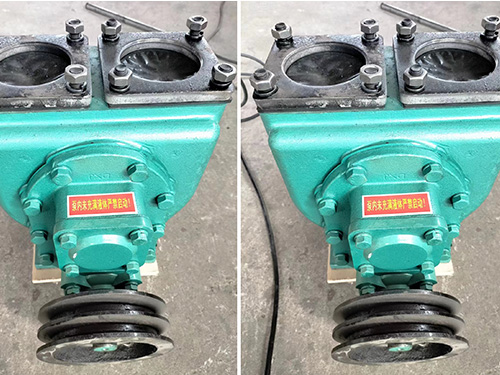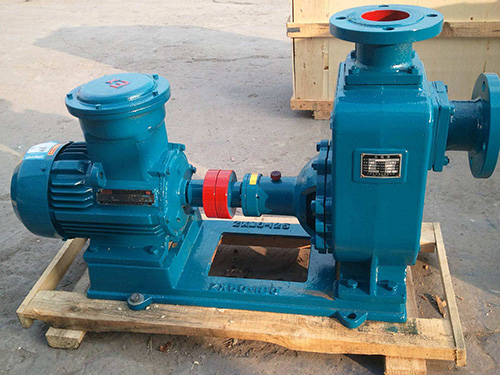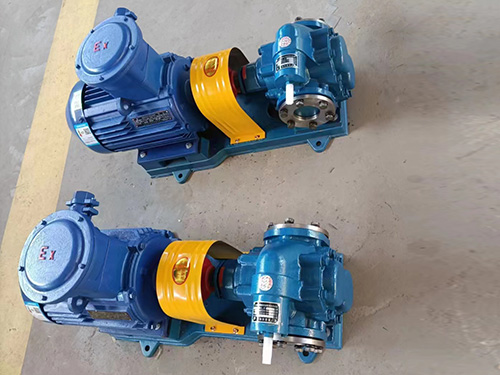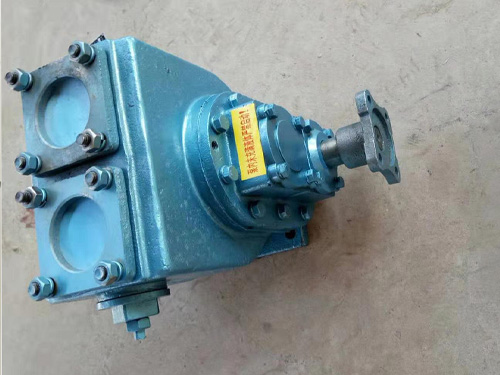Reasons and solutions for loud noise in gear oil pumps
2025-06-13 08:08:51
The reasons and solutions for the loud noise of gear oil pumps are as follows:
1、 Common reasons
1. Cavitation phenomenon
Reason: Air is mixed into the oil or the inlet pressure is too low, causing bubbles to burst and produce noise.
Performance: High frequency explosion sound accompanied by flow fluctuations.
2. Mechanical vibration
Reason: The gear pump is not concentric with the motor shaft, the bearings are worn, the gears are worn, or the installation bolts are loose.
Performance: Low frequency roar or periodic knocking sound.
3. Oil problem
Reason: High viscosity of the oil, contamination (particulate matter), or low/high oil temperature.
Performance: Noise accompanied by unstable oil pressure.
4. Pressure pulsation
Reason: High system pressure or improper adjustment of the relief valve can cause hydraulic shock.
Performance: Periodic buzzing sound.
5. Gear wear or poor meshing
Reason: After long-term use, the gear tooth surface wears out, the tooth profile error or the backlash is too large.
Performance: Metal friction sound or irregular abnormal noise.
6. Insufficient oil absorption
Reason: The suction pipe is too thin, the filter is clogged, or the fuel tank level is too low.
Performance: Noise accompanied by abnormal vacuum degree at the oil suction port.
2、 Solution
1. Eliminate cavitation
Check if there is any air leakage in the oil suction pipeline and tighten the joint.
Increase the diameter of the oil suction pipe and shorten the length of the pipeline.
Ensure that the viscosity of the oil is suitable for the working temperature (switch to low viscosity oil in winter).
Keep the fuel tank level above the minimum requirement.
2. Mechanical fault handling
Alignment correction: Use a dial gauge to adjust the coaxiality of the pump and motor (≤ 0.1mm).
Replace bearings/gears: If the wear is severe (check for scratches or pitting on the tooth surface).
Tighten fixing bolts: Use anti loosening gaskets or thread glue.
3. Oil management
Replace the cleaning oil, and it is recommended to achieve an ISO cleanliness level of * * 18/16/13 * * (ISO 4406).
Install magnetic or high-pressure filters (accuracy ≤ 10 μ m).
Control the oil temperature between * * 40~60 ℃ * * (install a cooler or heater if necessary).
4. System optimization
Adjust the pressure of the overflow valve to the rated value (to avoid long-term overpressure operation).
Install an accumulator or pulse damper at the outlet to absorb pressure pulsation.
Check the pressure difference of the oil suction filter (if it exceeds 0.3 bar, it needs to be cleaned or replaced).
5. Design improvement
Choose low-noise gear pumps (such as helical gears or modified gear designs).
Install a soundproof cover around the pump (ensuring proper heat dissipation).
3、 Quick diagnostic steps
1. Sound localization: Use a stethoscope to determine the noise source (pump body, inlet or outlet).
2. Pressure measurement inspection: Compare the inlet vacuum degree (normal value<0.04MPa) with the outlet pressure fluctuation.
3. Oil testing: Take a sample and observe whether it contains bubbles or particles.
precautions
During shutdown maintenance, it is necessary to release pressure to avoid high-pressure oil splashing.
When replacing gears, they need to be replaced in pairs to ensure meshing accuracy.
The above methods can systematically solve the noise problem. If it still cannot be solved, it is recommended to contact the manufacturer to check the internal structure of the gear oil pump body (such as whether the axial clearance is too large)

The YHCB high flow pump has the characteristics of large flow rate, high head, small settli...

The CYZ centrifugal pump adopts an axial return liquid pump body structure, which is compos...

Copper gear pump (KCB type) is suitable for conveying lubricating oil or other liquids with...

The car mounted circular arc gear pump can be installed on the car and driven by the output...



